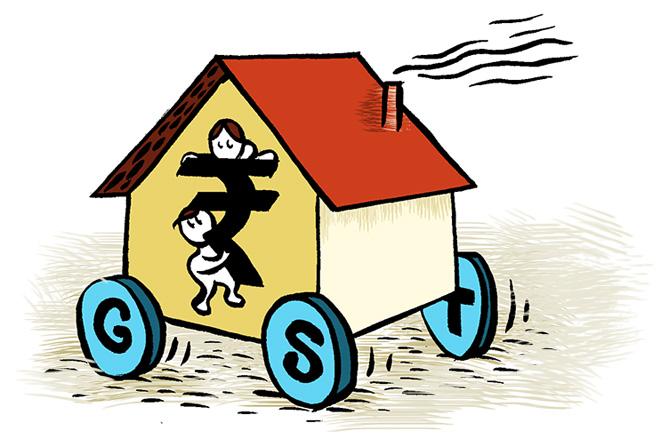Rent on PG accommodation, hostel services to attract GST: Karnataka AAR
Rent paid for paying guest (PG) and hostel accommodations, which are not like residential dwellings, would attract 12 per cent goods and services tax (GST), the authority for advance rulings (AAR) in Karnataka has ruled.
The AAR, while hearing a case of Srisai Luxurious Stay LLP, said that only rent for residential dwellings would qualify for GST exemption.
There was earlier no GST on residential dwellings, as well as on hotels, inns, or guest houses where the rent is up to Rs 1,000 a day.
However, the government issued a notification on July 13, 2002 to lift the GST exemption for hotels and guest houses, where rent is up to Rs 1,000 a day.
The notification was effective from July 18 that year.
Srisai, which develops and manages PG accommodations and hostels in Karnataka, filed an application before the AAR and argued that since rent on these places is like that for residential dwellings, there should be no GST on it.
The authority observed that the applicant claims to take a residential dwelling on rent and then creates partitions and arranges cots that are let out.
The company charges inhabitants in accordance with the number of people sharing a room.
The AAR found that as such the accommodation is not a residential dwelling, but a room shared by unrelated people.
Besides, invoices are raised per bed on a monthly basis.
These are not characteristics of residential dwelling, it observed.
The applicant admitted that the accommodation does not have individual kitchen facilities for each inhabitant and cooking is not allowed either.
These are not essential characteristics of any permanent stay, the AAR observed.
Experts believe that other PG and hostel owners will have to pay 12 per cent gst if these places do not provide individual cooking facilities and a single accomodation is given to unrelated parties, in case AAR ruling is abided by other states too.
Sandeep Sehgal, partner at AKM Global, said the ruling by the AAR highlights the nuanced complexity of GST applications in the hospitality sector.
The authority also ruled that rent paid by the company to landowners would attract GST on reverse charge mechanism (RCM) and the applicant has to obtain GST registration.
Under RCM, the recipient of services pays GST to the government, unlike the normal practice of service providers doing so.
For all the latest business News Click Here

